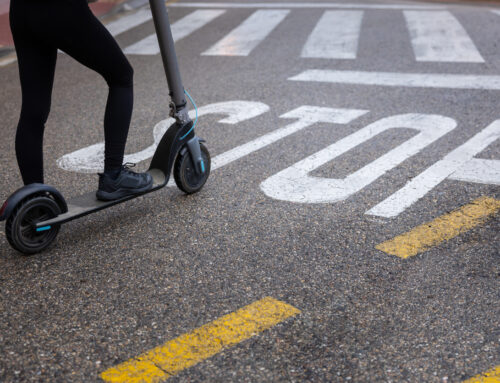Teen Alcohol Misuse Starts at Home in North Carolina: What Parents Need to Know

All parents want their home to be the safest place for their children. But what happens when home itself becomes a source of risk?
Talk it Out NC’s 2023 survey showed that roughly half of teens who drink alcohol get it from home, family members, or friends. Studies also show that teens who misuse alcohol are more likely to develop alcohol disorders as adults. Preventing underage drinking in North Carolina begins at home. Learn how you can protect your teens today.
How Teens Access Alcohol at Home and Why Hiding It Isn’t Enough
Our survey revealed that 65% of North Carolina parents keep alcohol in the house. Having alcohol in the home isn’t automatically a problem. However, keeping alcohol out of sight or on a high shelf isn’t enough.
Today’s teens are curious, informed, and resourceful. What matters most is the message you send about alcohol and how you set clear expectations at home.
During school breaks, teens spend days at home while their parents are at work. Having unsecured alcohol in sight and in reach is enough to tempt a curious teenager. When we asked North Carolina parents how they handle alcohol in the house, only 34% locked bottles away.
All high school students have the potential to engage in dangerous behavior given easy access to alcohol, even the responsible ones. Having alcohol readily available at home, mixed with curiosity, is a perfect recipe for underage drinking during school breaks.
Should Parents Let Teens Drink at Home? What Experts Say
Summer activities like barbecues and lake days often include alcohol for adults. Unfortunately, some parents believe that allowing teenagers to drink at home can teach responsible drinking habits.
In fact, our survey showed that a higher percentage of parents than students believe even though it was okay for kids to drink alcohol underage. This belief exists even though North Carolina is a zero-tolerance state. Not only is it illegal for anyone under 21 to consume alcohol but also drivers with any alcohol in their system will face license suspension with criminal charges and fines if they’re under the age of 21.
In a recent webinar, prevention expert Rodney Poole shared a story that’s all too familiar in North Carolina. A dad told Rodney about allowing teens to drink at home if he collected the car keys for safety.
But Rodney explains, “You’re only keeping the cars safe. There are so many risks involved with underage drinking.” Even when teen drinking happens under adult supervision, the effects of alcohol includes disrupted brain development, mental health challenges, and increasing the likelihood of long-term alcohol misuse.
Why “Just One Drink” Sends the Wrong Message to Teens
When parents allow “just one drink” during a holiday party or privately at home, you’re saying that teen drinking isn’t a big deal. If “just one drink” is no big deal, then teens are apt to believe that having a few or even more drinks may also be okay as long as they’re at home.
According to Iredell Free News, the CDC found 31% of teens in Iredell County reported binge drinking. The study also shows that 24% of North Carolina teens overall had been binge drinking in the past 30 days.
Nearly 10% of North Carolina teens use alcohol to cope with stress or bullying or to celebrate big wins. Since teens are prone to making impulsive, emotionally driven decisions, an argument with a friend or feeling left out can be enough to drive teens to drink while underage.
How North Carolina Parents Can Prevent Teen Drinking
A North Carolina study shows nearly 10% of parents caught their child drinking alcohol, even with locked liquor cabinets. If you’re concerned about teen drinking, the best first step isn’t a lock but a conversation.
Your voice carries the most weight. In fact, 94% of North Carolina teens believe their parents can prevent underage drinking by talking with them more often. You can start the conversation today with the following rules for prevention:
Talk Early, Talk Often
Even if you don’t think your teen is drinking, start the conversation. Keep it open, honest, and judgment-free. Let them know that rules exist because you care about their safety and health, not because you don’t trust them.
Use Real Facts to Talk About Alcohol Risks
Help your teen understand that your concern is based on science and share the latest facts about teen drinking. For example, among underage young people in North Carolina who have tried alcohol, 65% of them did so for the first time while in middle school. Teens who start drinking between 13 and 15 are seven times more likely to develop an alcohol disorder.
Secure Alcohol at Home to Prevent Teen Access
After you’ve talked, back it up with action. Take a fresh look at how alcohol is stored in your home. Is it visible? Easy to grab? Consider locking away alcohol to reduce temptation and limit access.
Parents may assume that hard lemonades or seltzers are less harmful options. But they’re just as dangerous and illegal. These sweet, easy-to-drink options can lead to fast intoxication because teens may not realize how much alcohol they’re consuming.
Set Clear, Consistent Rules About Alcohol
Don’t wait for problems to start before you set rules. Be clear about your family’s expectations of underage drinking. When talking with younger teens, prepare to revisit those rules as your teens get older and face new pressures. As a parent, it’s also never a bad idea to examine your own habits around alcohol. Knowing that your child will naturally look to you as a model for their own attitudes towards drinking, ask yourself what messages you might be sending them about what’s appropriate when it comes to how often and how much to consume.
You Can Start the Conversation Today.
Teen drinking is a serious problem in North Carolina, but parents change the narrative every day. Start the conversation today and prevent underage drinking in your home.



